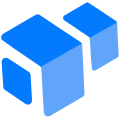SQLBot's Technical Architecture and Core Capabilities
As an innovative solution for intelligent data query system, SQLBot's core technology is built on the synergistic framework of Large-scale Language Model (LLM) and Retrieval Augmentation Generation (RAG). The system parses the user's natural language input through the powerful semantic understanding capability of LLM, and at the same time retrieves contextual information such as table structure and field descriptions from database metadata with the help of RAG technology. The dual mechanism ensures that the generated SQL statements not only conform to the user's query intent, but also accurately match the data structure.
A typical workflow consists of three key steps: first, the system analyzes natural language requests such as "query last month's sales of top 5 products"; then it automatically searches for sales-related tables and fields in the database schema; finally, it generates standard SQL like "SELECT product_name, SUM(amount FROM sales WHERE... ORDER BY... LIMIT 5″. name, SUM(amount) FROM sales WHERE... ORDER BY... LIMIT 5″. Tests show that this combination of technologies improves the accuracy of SQL generation by more than 40% compared to pure LLM solutions.
As an enhancement module of DataEase open source BI tool, SQLBot is specially designed with model-independent architecture, which can flexibly access a variety of large models such as GPT-4, Wenxin Yiyin, etc., and can be adapted to mainstream databases such as MySQL to form an end-to-end intelligent query pipeline.
This answer comes from the articleSQLBot: The Intelligent Bot That Converts Natural Language to SQL QueriesThe





















